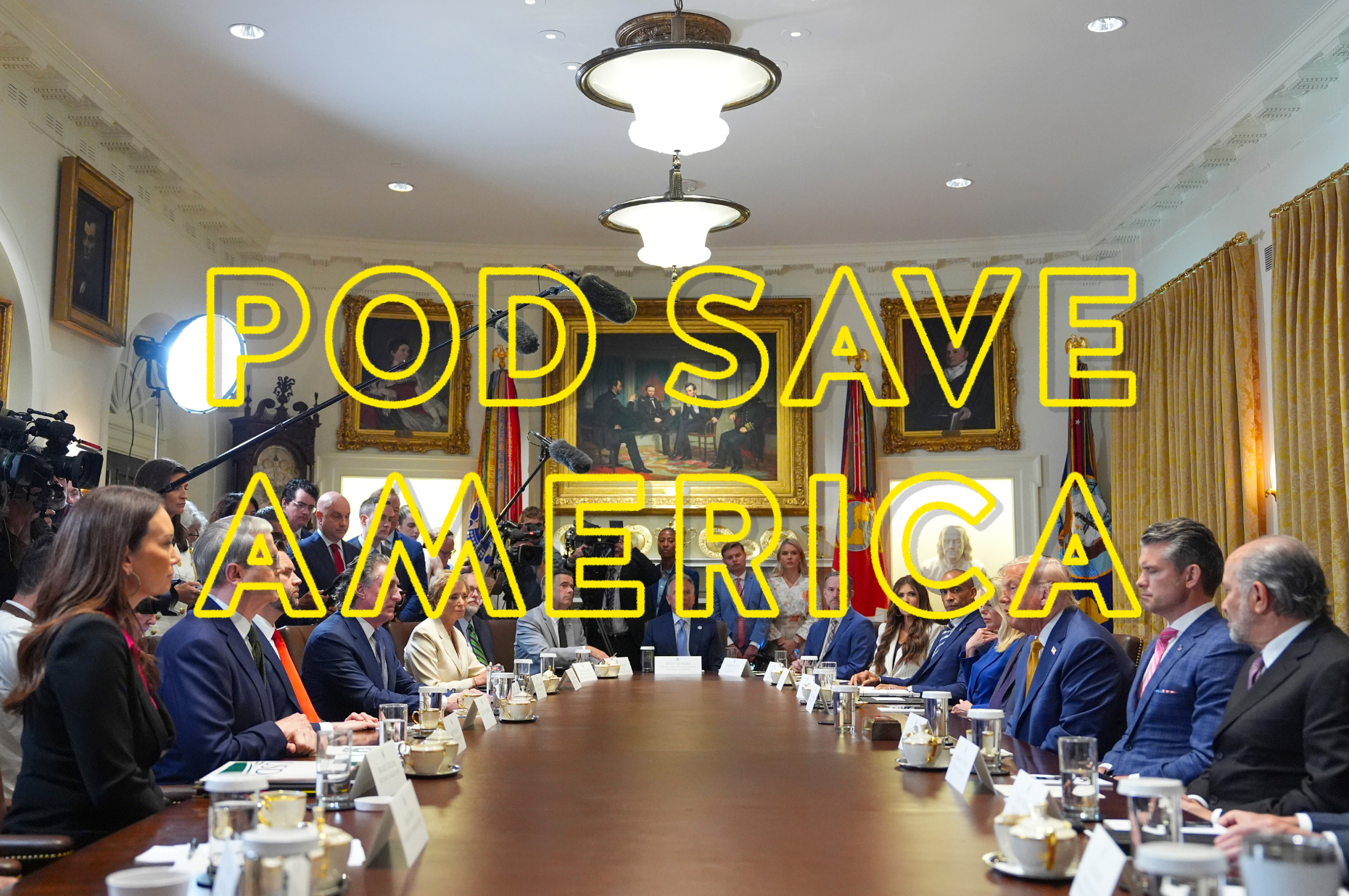
Ken Harbaugh is a former Navy pilot and nominee for the US House of Representatives. Ken is the host of ‘Reclaiming Patriotism‘, the latest in our Crooked Minis podcast series. To listen, subscribe to Crooked Minis wherever you get your podcasts.
Growing up, I never imagined I’d be accused of not loving my country enough. Or that people working for me would have handguns pulled on them, simply because I ran for Congress as a Democrat. After all, my childhood was defined by patriotism. I grew up in a military family, the son, grandson, and brother of Air Force combat pilots. My grandfather flew bombers in World War II, and was badly wounded during a mission over the Pacific. My father served in Vietnam, and crash-landed his fighter after taking enemy ground fire.
Inspired by their stories of service and sacrifice, I joined the U.S. Navy, and flew recon missions over the Middle East and near North Korea and Russia. After nine years, I left the military, but continued to serve as a leader of several veteran organizations. I always took for granted that my love-of-country spoke for itself.
Yet as a recent Democratic nominee for Congress, I lost count of the number of times my opponents challenged my patriotism. I ran in a district that President Trump won by an overwhelming margin. Going in, I expected a tough fight. I did not anticipate that my service would be wielded against me as a political weapon.
We know what this looks like at the top, as when Trump accuses Democrats of being “un-American” for not applauding his speeches. More alarming, however, is what is happening on the ground. Field organizers from my campaign had guns pulled on them after saying they worked for a Democrat multiple times. Deep in Trump country, “Are you an American, or are you a Democrat?” was a common refrain.
This politicization of patriotism is dangerous for both sides. On the right, self-righteous expressions of patriotism feed a growing tribalism. Not long ago, there were Republicans willing to stand up to this. John McCain, during his presidential campaign against Barack Obama, famously rebuked a questioner at a town hall who challenged Obama’s love for his country. And it was McCain, again, who helped expose the “paid patriotism” at pro-football games, in which the NFL was richly compensated by the Pentagon to honor military vets.
Where has that outrage gone? When a President calls Democrats “treasonous” for refusing to support his policies, where are the Republican leaders rising to defend their colleagues? My grandfather and father, combat vets and lifelong Republicans, would be ashamed at the way their party has retreated behind lapel pins. Patriotism, the way they deploy it now, is indeed in danger of becoming the last refuge of scoundrels.
The soul of the Republican Party may be at stake, but the risks for Democrats are no less severe. Not long ago, members of both parties described themselves, in roughly equal proportion, as “patriotic.” That is no longer the case. In conversations with my Democratic friends, and even fellow candidates for Congress, I have sensed a deep reluctance to assert one’s love of country. The political right has so co-opted the language and symbols of patriotism, that many on the left now associate it with nationalism, militarism, and xenophobia.
I see little hope that a new generation of Republicans will rise and stand up to phony patriotism. That leaves it to Democrats. We must acknowledge, first and foremost, that love-of-country is a force for good. Then we must prove, by our advocacy and our actions, what that means. When we tolerate policies that conflict with our values, that is not patriotic. Ignoring the forever war in Afghanistan, denying healthcare to millions of Americans, hiding behind phony tributes to military veterans—these are antitheses of patriotism.
As a candidate for Congress, I was often questioned about not wearing an American flag pin on my suit lapel. I explained, with as much patience as I could, that a pin does not make a patriot. Still, I could tell that many Republicans remained unconvinced. Then one of them, a fellow veteran, suggested after a town hall meeting that I wear my Navy wings instead. “You served,” he said. “That is what love-of-country looks like – and besides, it’ll make the haters think twice.” To this day, I wear a set of miniature gold aviator wings on my suit.
That fellow vet and I disagreed on many issues. But we recognized each other as patriots, who both cared deeply about our nation and its people. Genuine patriotism demands that kind of empathy. After all, our country is its people, and all the flag pins in the world cannot replace genuine concern for one’s fellow citizens. We must remind ourselves, on both sides, of this basic requirement of patriotism: In order to love our country, we must love our neighbors.

